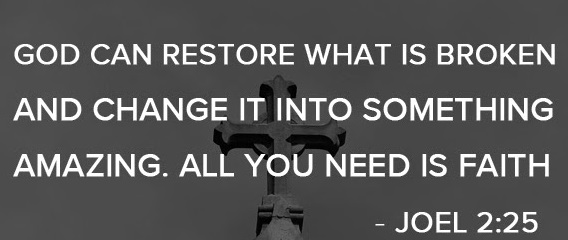I can faithfully say that everyone gets exhausted from time to time. Most of the time I feel like I'm in a perpetual state of exhaustion. In our busy lives we get a little extra rest but not the rest we need. We continue to trudge on despite the overwhelming drain it causes our bodies and those around us.
There are times in life when we find ourselves both physically and emotionally drained. It sometimes feels as though we have nothing left to give. During these times, it's imperative that we find rest for our minds and bodies and refreshment for our souls.
Sometimes we can point to a significant factor, but often we can’t. Our weariness results from the cumulative, multilayered intersections of life’s complexities, bodily frailties, emotional heartbreaks, and the consequences of sin. It surpasses understanding. Because our burdens are not simple, they are not relieved by simplistic platitudes (“Cheer up! Things are bound to turn around!”). But a simple promise can relieve a complex burden, provided we believe that the power behind the promise is complex and strong enough to relieve our heaviness.
And into our weariness steps the most complex power in existence speaking a promise as simple, hopeful, and refreshing as we could possibly want: “Come to me, all who labor and are heavy laden, and I will give you rest. Take my yoke upon you, and learn from me, for I am gentle and lowly in heart, and you will find rest for your souls. For my yoke is easy, and my burden is light.” (Matthew 11:28–30)
The simplicity of Jesus’s promise is both striking and refreshing. Jesus doesn’t offer us a four-fold path to peace-giving enlightenment, like the Buddha did. He doesn’t give us five pillars of peace through submission as Islam does. Nor does he give us “10 Ways to Relieve Your Weariness,” which we pragmatic, self-help-oriented 21st century Americans are so drawn to. Unique to anyone else in human history, Jesus simply offers himself as the universal solution to all that burdens us.
And his simple promise is audacious: “Come to me.” The only way that this isn’t megalomaniacal lunacy is if Jesus is who he claims to be: the eternal Word made flesh, our Creator (John 1:1–3, 14; John 8:58; Hebrews 1:1–3). His simple promise implies a power behind it more than sufficient to lift what weighs us down. And here is where our burdened souls are tested. Will we believe in him; will we trust him? We want to rest our souls on the knowledge of how and when our burdensome problems will be addressed. But Jesus does not provide those details. He simply promises us that they will be addressed.
Jesus does not want our souls resting on the how and when, as if we are wise enough to understand and determine them. Rather he wants our souls resting on the surety that he will keep his promise to us in the best way at the best time. “Come to me,” he says, “cast your anxieties on me for I care for you” (see 1 Peter 5:7). “Trust in me with all your heart and do not lean on your own understanding” (see Proverbs 3:5), he says, “and you will find rest for your souls.”
Our souls only find rest in hope. That’s what we’re frantically looking for whenever our souls are burdened and restless: hope. And that’s what most of the marketing of most of the products in the world tries to offer us: hope. But they are false hopes for soul-rest, providing only temporary distraction from or briefly masking the effects of our burdened souls. They don’t truly lighten our loads. No, our burdened souls only truly find rest in one place: For God alone, O my soul, wait in silence, for my hope is from him. He only is my rock and my salvation, my fortress; I shall not be shaken. On God rests my salvation and my glory; my mighty rock, my refuge is God. (Psalm 62:5-7)
Jesus knows that he only is our salvation, our fortress, our mighty rock, our refuge. He is the one answer to every question, concern, fear, and need we will ever have. And so he simply and comprehensively offers us himself. For our hope is from him. Only in him will we find rest for our souls.


